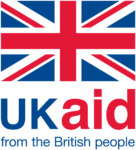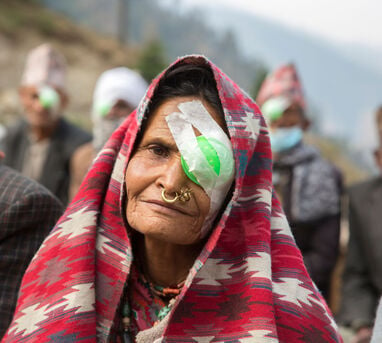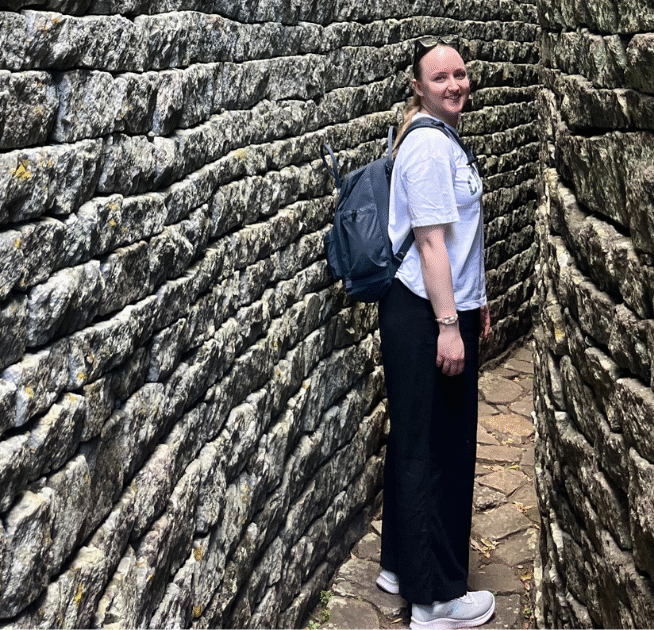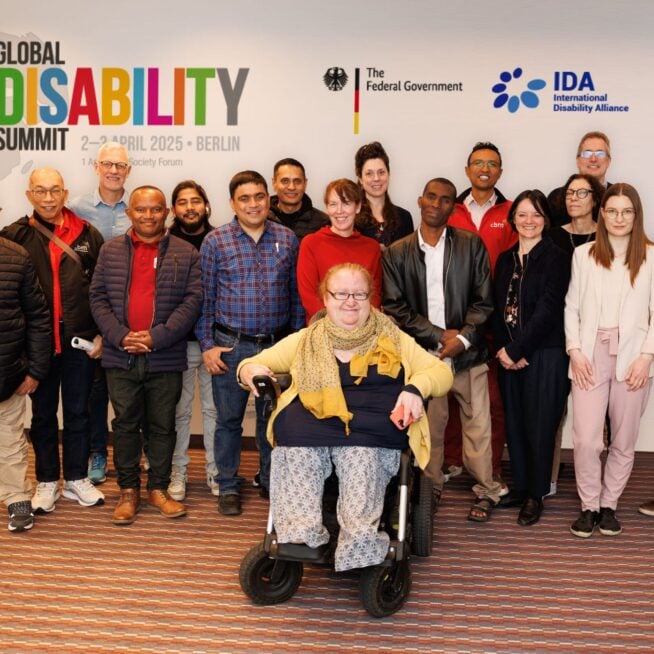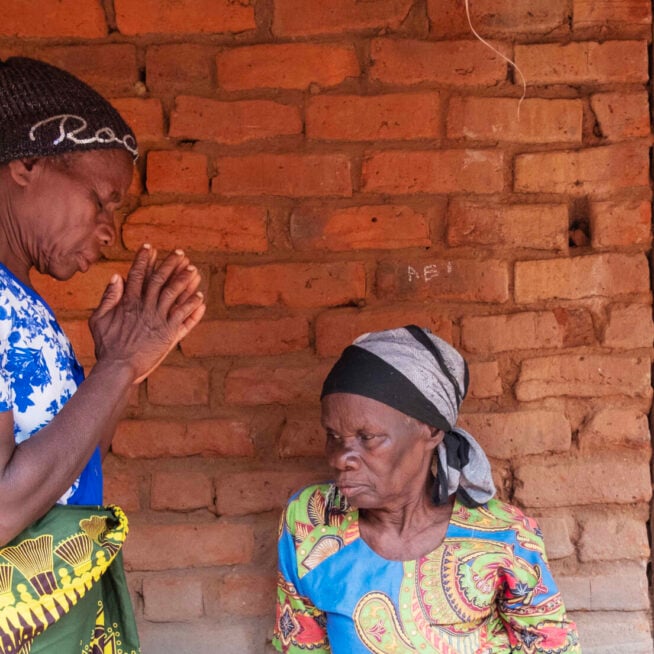After the completion of our See the Way Malawi project funded by donations and match funding from the UK government through UK Aid Match. Emma Symonds, Programme Manager at CBM UK has shared her reflections on the project’s successes.
Reflecting on See the Way Malawi
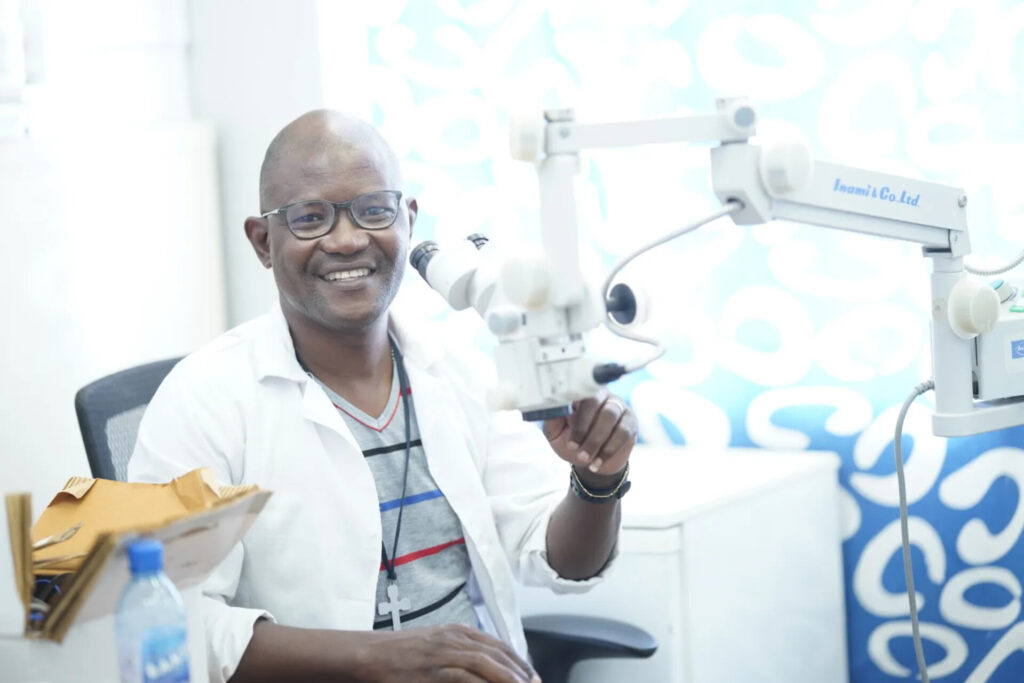
In September 2024 we wrapped up our 3-year FCDO-funded project aiming to improve access to eye health in the central region of Malawi. We celebrated some fantastic achievements delivered by a talented and dedicated project team, which were particularly impressive given the challenges facing Malawi in the last few years including protracted economic crisis, deadly cholera outbreak and devastating cyclones. The project work was carried out by long-term partner Nkhoma Eye Programme (part of Nkhoma Mission Hospital), and overseen by Malawi Network of Older Persons Organisations (MANEPO), an experienced Malawian civil society organisation.
The problem
District hospitals in Malawi are under-resourced to treat common eye conditions such as cataracts. This results in many people losing their sight, and subsequently their livelihood and ability to socialise and be active members of their community. Patients often need to be sent to big hospitals located far away in cities, where waiting lists are long and the journey is unaffordable. For people in rural and remote communities, and particularly people who are elderly or have disabilities, even accessing a district hospital to seek health care is extremely difficult. Besides this, common myths about eye health are pervasive in communities, preventing people from seeking medical care.
Our approach
We aimed to close these gaps by bringing quality services that people could trust, close to the people who needed them. Here are some of the ways we achieved this:
- We trained 1,775 clinical staff on eye health including cataract screening. This included district hospital staff, and Health Surveillance Assistants and Community Rehabilitation Assistants, who do outreach work in communities. This way, cataracts were identified directly in communities and referred for treatment.
- We conducted 6,652 cataract surgeries. We held cataract surgery outreach camps in district hospitals, enabling surgeries to be conducted at district level. We also provided transport to the hospital for patients who were otherwise unable to travel.
- We trained 1,056 community leaders on eye health, busting harmful myths and informing them about how to access the services available. These influential figures play an important role in encouraging people with eye problems to seek the appropriate medical care.
- We improved accessibility in 5 hospitals, including installation of emergency alarm systems and installation of accessible washrooms. This was critical to ensure elderly people and people with disabilities could access the services available.
- We trained two new cataract surgeons to perform surgeries independently. These two surgeons are working in the district hospitals and will continue to conduct cataract surgeries after the project ends, having been left with equipment and materials to do so.
- These interventions resulted in a huge increase in the number of people accessing eye health services in the 10 target hospitals – from 15,000 per year at the project’s start, to 70,000 per year in the final year. This speaks to the increased trust in the services the hospitals can offer, and increased demand for eye health services from rural community members.
- We successfully advocated for the Ministry of Health to include disability disaggregation into its patient consultation form, used across all health sectors across the country. This will for the first time allow clinicians and administrators to track how many people with disabilities are accessing health services.
Dr. Moyo, an ophthalmologist at Nkhoma Eye Programme told us:
Nkhoma Hospital really appreciates the work done by the FCDO project through Nkhoma for Malawians. The most important thing is restoring vision for those who would otherwise be blind, and sharing their testimonies of activities they are now able to do after successful surgery gives me and the entire Nkhoma team joy. These people are now contributing to national development and live independently. We appreciate so much the knowledge, equipment, resources gained from this project, above all, the vision restored.
While in Malawi for the project close-out, I met many people whose lives have been improved by our efforts to improve access to quality eye health services. For example, Angellah, the 14-year-old girl who had started school again after seven years, having dropped out due to developing cataracts. Or Yamkani and James, both of whom were able to resume their businesses after having their sight restored through cataract surgery.
I was particularly struck by meeting Dorothy, a woman in her 70s, who had become blind from cataracts, preventing her from running her business and looking after her grandchildren. Her children were hesitant about helping her go to the hospital for surgery, worrying that they would damage her eyes further. So, Dorothy sought the help of her 14-year old granddaughter Evelyn, who helped sneak her away to the hospital. Now, Dorothy has multiple small businesses and is no longer dependent on her family members. She is a vocal advocate for others in her community to seek medical care, and has even appeared on local radio to talk about the services she received.
CBM UK’s See the Way Malawi project was funded by donations and match funding from the UK government through UK Aid Match.
